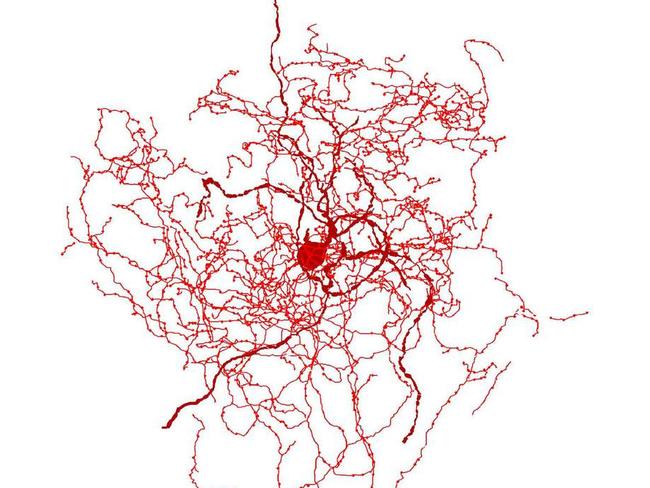New, and possibly unique, human brain cell discovered
A TEAM of scientists have identified a new brain cell thought to be unique to humans found in part of the brain linked to consciousness.
MUCH of the human brain remains a mystery to scientists.
It’s the reason we sit at the top of the food chain, but the question of what makes our brains different to other animals remains a somewhat elusive one for neuroscientists.
Research continues to provide answers however, and this week a new study published in the journal Nature Neuroscience identified a new and mysterious type of human brain cell.
The newly identified brain neurons have been dubbed “rosehip neurons” because the surrounding dense bundle of nerve fibres resembled a rose that had shed its petals.
The cell type has been added to a short list of specialised brain cells that may be completely unique to humans and perhaps other primates.
The cells have not been seen in animals used in the lab and display “anatomical features never described in rodents,” the paper says.
The research involved scientists from the US and Europe who gathered evidence over several years and was lead by researchers at the University of Szeged in Hungary and the Allen Institute for Brain science in Seattle, USA.
They ran complex sequencing experiments on tissue samples from the cerebral cortices of two male brain donors. Interestingly, the cells were found in a region of the brain that is thought to be responsible for consciousness — one of the most fascinating and enduring mysteries in the field of neuroscience.
“It’s the most complex part of the brain, and generally accepted to be the most complex structure in nature,” Dr Ed Lein from the Allen Institute said, in a report by Science Daily.

At this point, the researchers say they’re only speculating that these neurons are unique to humans.
“We really don’t understand what makes the human brain special,” Dr Lein said. “Studying the differences at the level of cells and circuits is a good place to start, and now we have new tools to do just that.”
The rosehip cells belong to a class of neurons known as inhibitory neurons, which stop the activity of other neurons in the brain. The team of scientists think the new-found neurons may play a role in brain disorders.
To test this theory, scientists reportedly plan to study the brains of donors who had psychiatric disorders while alive. If there are notable differences in the rosehip neurons, it could signal their possible role in such diseases.




